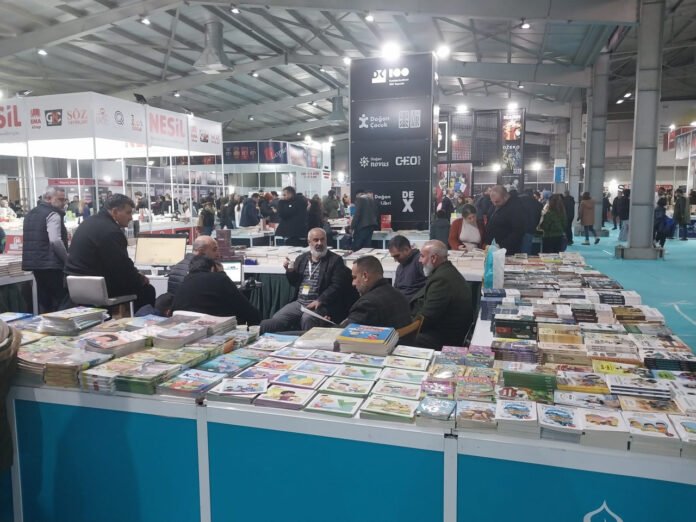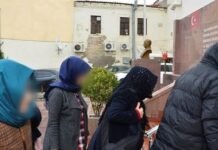Police raided the Diyarbakır 8th Book Fair on its fourth day, confiscating copies of five books and detaining a publisher, the Artı Gerçek news website reported on Thursday.
Police confiscated copies of four books printed by Aram Publishing House and one from Pirtukakurdi, sources of books focused on the Kurdish experience.
The confiscated titles were Nelson Mandela’s autobiography “Long Walk to Freedom,” which includes a foreword written by the outlawed Kurdistan Workers’ Party (PKK) leader Abdullah Öcalan, “Kadın Olmak” (Being a Woman) by Mekiye Derya Deniz, “Dildarê Serkeftinê” (The Love of Success) by Mahmut Aba, a collection of letters by Mehmet Hayri Durmuş and “Efrin Direniş Günlüğü” (The Afrin Resistance Diary) by Hatip Dicle.
All of the books include reference to the Kurdish struggle for rights, a long-standing issue of sensitivity in Turkey. The PKK, designated a terrorist organization by Turkey and its Western allies, has been waging a bloody war in Turkey’s southeast since 1984. Tens of thousands of people have been killed in the conflict.
Bawer Berşev, general coordinator of Dara Publishing and Pirtukakurdi, was detained for questioning by police.
“These confiscations aim to suppress publishing in Kurdish and spread fear,” Hakkı Boltan, owner of Aram Publishing and head of the Kurdish Publishers’ Initiative said. “This hostile, racist mindset will not succeed. We are not afraid and we call on the public to support publishers and raise their voices.”
“This is a terrible situation. Readers should freely choose and decide for themselves whether a book is good,” Mehmet Ölmez of the Mezopotamya Language and Cultural Research Association (MED-DER) said. “Authorities confiscating books is unacceptable.”
Kurds in Turkey are often pressured not to speak their native language. Prohibitions against the use of Kurdish in Turkey go back many years. Kurdish language, clothing, folklore and names were banned in 1937. The words “Kurds,” “Kurdistan” and “Kurdish” were among those officially prohibited. After a military coup in 1980, speaking Kurdish was formally forbidden, even in private life.
The visibility of Kurdish on TV and in print media was only made possible in the early 2000s thanks to significant progress made in the country’s bid to become a member of the EU.
A drift towards nationalism and the ruling Justice and Development Party (AKP) alliance with the far-right Nationalist Movement Party (MHP) in the last decade has led to an increase in anti-Kurdish racist attacks.















